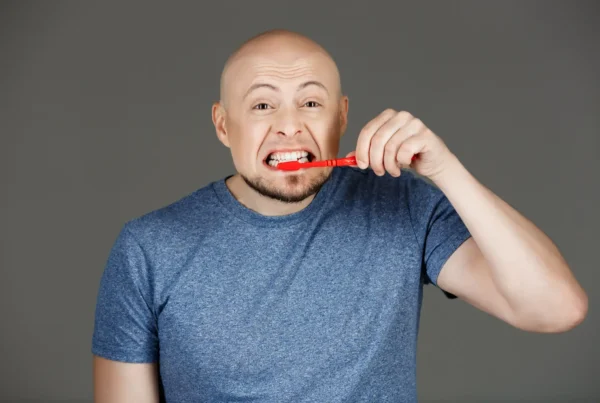
Using composite materials in dental treatment is not only a way to restore teeth but also to improve their color. Dental bonding is a simple method that allows for a quick transformation of tooth shape and appearance. What exactly is dental bonding, and what results can you expect? How does the entire process work, and how much does the treatment cost? Find out in the article below.
What is dental bonding?
Dental bonding is a non-invasive method used to restore teeth. It involves covering the tooth with a thin layer of resin-based composite material. This highly effective technique helps restore a beautiful smile, allowing for quick reconstruction of teeth and the elimination of unsightly stains and discoloration.
The difference between the teeth before and after bonding is noticeable immediately. After just one visit to the dental office, you can enjoy the enhanced appearance of your smile.
The dental bonding procedure
The dental bonding procedure can be divided into several stages. The duration depends on the extent of the correction, the dentist’s experience, and their manual skills. In many cases, the desired result is achieved within an hour, although it may take two to four visits in some situations.
The bonding material is applied after minimally reducing the surface of the tooth. The enamel is first etched with a mild acid. Then, resin and composite layers are applied to the tooth. Finally, the material is hardened using a special curing light. The treatment is painless and does not require anesthesia.
Read more: How to care for your teeth after dental bonding?
Effects of dental bonding
What results can you expect after undergoing dental bonding? They are visible almost immediately. Your teeth will appear more even, and their shape will be significantly improved. In some cases, bonding may serve as an alternative to orthodontic treatment, but the effect is limited to aesthetics and does not impact bite function.
When is dental bonding recommended?
Dental bonding is recommended for minor cosmetic issues, such as a misshapen or fractured tooth, when one tooth is shorter than the others, or when a crack appears. Composite resin is used to repair chipped or broken teeth, remove surface discoloration, and close diastemas or other unattractive gaps between teeth.
Are there any contraindications to dental bonding?
Bonding can only be performed on healthy teeth. The presence of cavities or periodontal disease disqualifies a patient from the procedure. It is also not recommended for individuals with bruxism – a condition characterized by involuntary teeth grinding.
How much does dental bonding cost?
The cost of dental bonding depends on the severity of the problem, the dentist’s expertise, and whether the tooth needs prior preparation. Bonding is more affordable than ceramic veneers, provided that no extensive diagnostics are required beforehand. Prices vary depending on the case, but typically start at 500 PLN per tooth.





